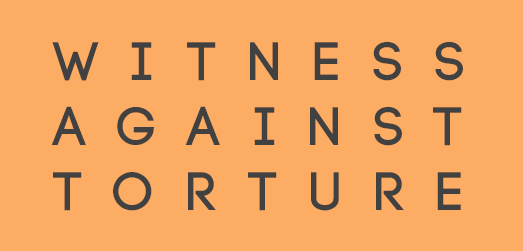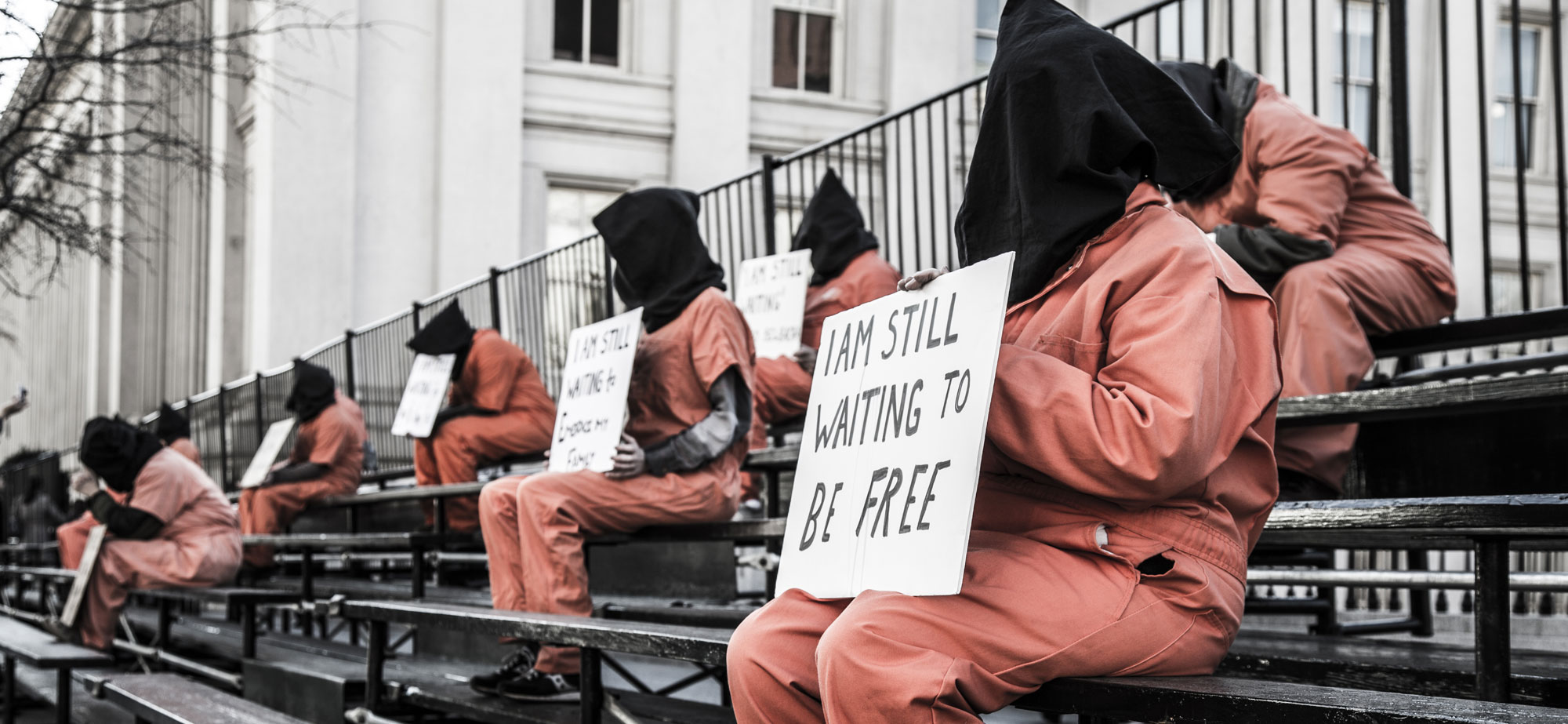From the Archive
Spring 2014 Retreat Summary

Written by Marie Shebeck
Jonah House filled up over the course of Thursday, March 21 as friends and fellow activists flew, drove, bused, and trained into Baltimore for our second annual strategic planning retreat. On Friday, after Jonah House residents Ted, Amy and baby Eli welcomed us to their new home, we spent the morning reflecting at four stations created by Beth B., Chrissy N., and Chris K. Each station had a question and various images and objects, such as artwork created by the men at Guantanamo, dismal pictures of the prison, and an empty orange jumpsuit. The questions were:
- In what ways has Witness Against Torture enriched our personal journeys?
- What inner values do we bring to this work?
- What am I stepping away from this weekend?
- How do you think about the journeys of the men at Guantánamo Bay?
These questions stayed with us through the weekend as we met, discussed, ate, and spent time with one another. We invite you to reflect on them as well.
We then jumped in to the strategic planning. Matt D. and Jeremy V. gave in-depth updates about the political and legal status of Guantanamo. Topics ranged from the number and pace of releases from the prison; to the ongoing hunger strikes and legal challenges to forced-feeding; to the upcoming NDAA authorization; to current media coverage of Guantánamo. Matt and Jeremy also relayed what our allies identified as their priorities for the coming year.
The Agenda Team (Helen, Jeremy, Beth, Jerica, Matt) facilitated several incredibly stimulating sessions to help us redesign Witness Against Torture’s structure so that the group can be more unified and effective. These included small group conversations, as well as drawing and writing exercises. These activities led us to think about our own roles in WAT and how we wish to improve its design. They also encouraged us to name our thoughts around power dynamics and what might keep us from participating wholeheartedly. It was energizing to think about how we can all share in the work that WAT does in a way that best honors our talents, intentions and shared vision.
On Saturday, we met at Viva House — a Catholic Worker house in Baltimore depicted in the TV series The Wire — to continue our redesign conversation and start planning for the coming year. It was during these sections that we decided on the focus of the year.
What decided to focus on for 2014:
- To organize a Global Day of Action to Close Guantánamo and End US Torture on May 23, 2014. This is the one-year anniversary of President Obama’s last speech about Guantánamo. (There is currently a Working Group to prepare for the Day of Action.) Email us for more info.
- To participate in Torture Survivor Awareness Month activities in Washington DC from June 26th thru the 30th. This will include meetings to talk more about WAT.
- To mobilize around lawsuits that are currently challenging forced-feeding in Guantánamo. (More info to come)
- January 11th, 2015: We also began discussion of the focus and location of our next January actions (DC or the Southern Command HQ in Florida). Get excited! More details to come.
- Finally, we formed a WAT Organizing Team (See description below).
On Sunday, many attended a liturgy at Jonah house led by Liz McAllister. The whole group then shared brunch and a closing reflection with the art from the men detained at Guantánamo. As we recommit to this crucial and desolate advocacy, we remember the journeys of these men and the justice they seek.
What is the WAT Organizing Team?
Written by Jeremy Varon
After thorough discussion of WAT’s structure and how it both enables and sometimes holds us back, those at the retreat unanimously voted to establish a WAT Organizing Team. Nine volunteers — Jerica, Matt, Beth B, Marie, Chrissy, Beth A, Palina , Chris K, and Jeremy — agreed to join the team. Their commitment to this role was acknowledged and celebrated by all at the retreat.
The WAT community functions with tremendous energy, cooperation, and shared responsibility when large numbers of us gather, fast, and organize together every January in Washington, DC. (January 11 is the “anniversary” of when the prison opened in 2002, and a time for anti-Guantanamo protests worldwide.) But during much of the year, when we are dispersed, too few people in the group set the strategic vision, and plan and scramble to organize protests and other initiatives. This limits how much we take on, threatens some of us with burn-out, and makes poor use of the talent and energy WAT members possess. It also focuses our activities in a small number of geographic areas.
At the retreat, we decided that we want a new structure so that WAT can mobilize actions and respond to developments in Guantanamo with greater frequency, reach, and power. To make this happen, we set up an Organizing Team, compromising members from different regions and with diverse skill sets. Some of the core tasks of the Organizing Team are: to think of strategic ways — year round — that WAT can serve its goals of closing Guantanamo and ending torture; to mobilize people and other resources to take effective action; to devise rapid responses to particular crises at Guantanamo and shifts in the political landscape; and to build and maintain relationships with allies.
But that’s only part of it. Equally important, the Organizing Team exists to help WAT members nationwide bring their own actions and campaigns to fruition by directing resources to them and providing, as needed, assistance with particular tasks (eg, media work, demo design, getting materials onto our Website and into our social media). The Organizing Team, that is, works in two directions: it directs energy out to WAT nationwide; and it receives ideas, input, and instruction from WAT members everywhere to facilitate local action.
The Witness Against Torture community is built on trust and commitment to a common vision. The Organizing Team model likewise has trust at its foundation: that the Team itself will serve the best interests of the larger group and our shared cause, and that WAT members everywhere will both respect the Team and hold it accountable to its purpose.
The Team will meet face-to-face again in June, and we will assess as a larger group how it is working, as well as its composition, in January of next year.



Join us on social media